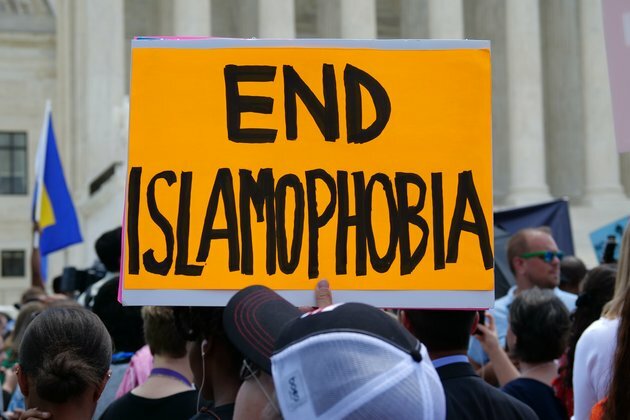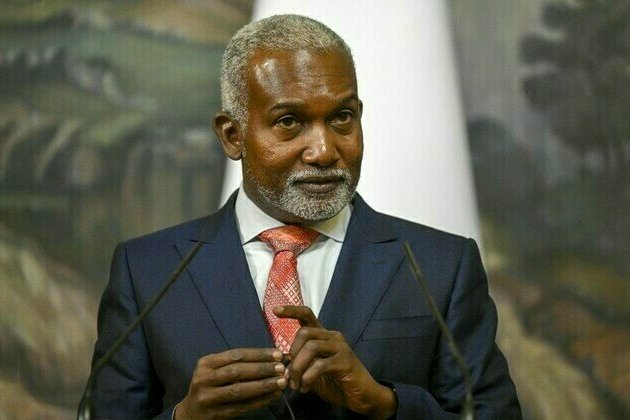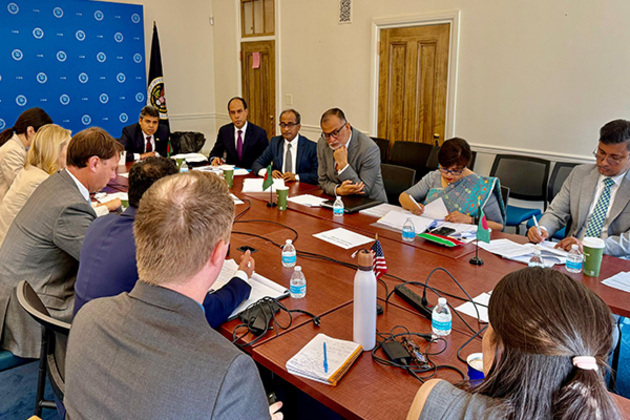Islamophobia in western media is based on false premises
The Conversation
22 Jan 2021, 01:09 GMT+10

Although anti-Muslim sentiments certainly existed long before 2001, the Sept. 11 terrorist attacks and the response to them intensified anti-Muslim tropes, namely the presumption that Islam is inherently violent or that Muslims have a propensity for terrorism. Since 9/11, specific individuals have turned Islamophobia into an industry, scapegoating Muslims to further their own agendas.
Like other forms of intolerance, however, Islamophobia can be objectively assessed. Empirical studies are an effective means of exposing this prejudice, one that plagues both sides of the political spectrum.
Anti-Muslim rhetoric
The rhetoric of Canadian conservative author Mark Steyn is typical of right-wing Islamophobia. For instance, Steyn claims that "most Muslims either wish or are indifferent to the death of the societies in which they live."
Likewise, Dutch politician and right-wing populist Geert Wilders refers to the Qur'an as "a source of inspiration for, and justification of, hatred, violence and terrorism in the world, Europe and America." British conservative political commentator Douglas Murray suggests that to reduce terrorism, the United Kingdom requires "a bit less Islam."
Prominent left-wing commentators also contribute to the same scaremongering stereotypes as their conservative counterparts. For example, American neuroscientist and new atheist Sam Harris asserts that "there is a direct link between the doctrine of Islam and Muslim terrorism."
Similarly, American comedian and television producer Bill Maher believes that there is a "connecting tissue" of intolerance and brutality that binds 1.6 billion Muslims to terrorist groups like ISIS. And Somali-born Dutch American activist and writer Ayaan Hirsi Ali states that "violence is inherent in the doctrine of Islam."
None of these characterizations, however, are sufficient from a scholarly viewpoint. Self-evident positions and gross exaggerations tend to detract from the main issue: whether the depiction of Muslims as violent extremists is misleading.
Most Muslims reject violent extremism
Globally speaking, Muslims overwhelmingly reject suicide bombings and other forms of violence against civilians in defence of Islam. Studies found that Muslims view such extremism as rarely or never justified, including 96 per cent in Azerbaijan, 95 per cent in Kazakhstan, 92 per cent in Indonesia and 91 per cent in Iraq.
The 2016 report What Muslims Want, the most extensive research of British Muslims ever conducted, found that nine of 10 British Muslims reject terrorism outright. When asked "To what extent do you sympathize with or condemn people who commit terrorist actions as a form of political protest," 90 per cent condemned these actions, five per cent didn't know and three per cent neither condemned nor condoned political acts of terror.
That's hardly "most Muslims," as Steyn contends.
When a large-scale global survey asked if "attacks on civilians are morally justified," similar results were found when comparing Muslim attitudes to the general public in France, Germany and the United Kingdom. In fact, the responses were almost indistinguishable: French public (one per cent) versus Muslims in Paris (two per cent); German public (one per cent) versus Muslims in Berlin (0.5 per cent); and British public (three per cent) versus Muslims in London (two per cent).
In North America, research outcomes were strikingly similar. In a 2016 Environics Institute survey, only one per cent of Canadian Muslims endorsed the following statement: "many" or "most" Muslims in Canada support violent extremism. When asked if killing civilians for political, social or religious reasons can ever be justified, a 2017 Pew Research Center survey found that 84 per cent of American Muslims confirmed that it is "never/rarely" justifiable.
Because 12 per cent of American Muslims replied that violence against civilians can be "sometimes/often" justified, anti-Muslim activists argue that hundreds of thousands of Muslims remain radicalized. The qualitative responses of Muslims are quite revealing in this regard: violence is permitted if attacked, both as individuals and as a nation. In other words, in self-defense. When the U.S. general public was surveyed, their answers were practically identical: 83 per cent and 14 per cent respectively.
Contrary to Maher's belief that the world's Muslims support terrorist organizations like ISIS, most people in countries with significant Muslim populations have an overwhelmingly negative view of ISIS, including virtually 100 per cent of respondents in Lebanon, 94 per cent in Jordan and 84 per cent in the Palestinian territories (10 per cent of Palestinians had no opinion of ISIS).
False assumptions
Islamophobia is an apt term for classifying inaccurate assumptions concerning Muslims and Islam. Those forwarding an anti-Muslim agenda believe that their viewpoints are coherent, but as Eli Massey and Nathan J. Robinson point out, the function of a prejudice "leads us to believe that our generalizations are based on reason and evidence, even when reason and evidence actually point in an entirely different direction."
The main assertion that Muslims largely support extremist violence is groundless. Because Islamophobia distorts the western image of Muslims, scientific studies serve as an important corrective in two important ways. First, they expose Islamophobic attitudes that have gripped the West since 9/11 and second, they help to decrease the spread of anti-Muslim vitriol by providing a rational forum for discussion.
Author: Stuart Chambers - Professor, Sociological and Anthropological Studies, LУЂтЌтЂUniversitУТЉ dУЂтЌтЂOttawa/University of Ottawa 
 Share
Share
 Tweet
Tweet
 Share
Share
 Flip
Flip
 Email
Email
Watch latest videos
Subscribe and Follow
Get a daily dose of Illinois Intelligencer news through our daily email, its complimentary and keeps you fully up to date with world and business news as well.
News RELEASES
Publish news of your business, community or sports group, personnel appointments, major event and more by submitting a news release to Illinois Intelligencer.
More InformationNorth America
SectionFedEx, UPS step up as Canada Post loses market share in strikes
OTTAWA, Canada: With Canada Post struggling to maintain operations amid labour unrest, rivals like FedEx and UPS are stepping in to...
US pressuring Africa to accept deportees Nigerian official
Foreign Minister Yusuf Tuggar says his country has enough problems and cant take in foreigners straight out of American prisons Nigeria...
Russian crypto engineer detained in US asks Trump for pardon - advocate
Anatoly Legkodymov is facing extradition to France and 20 years in prison despite already serving one sentence in America ...
Tariff talks between Bangladesh and US end without conclusion
Dhaka [Bangladesh], July 12 (ANI): The three-day second-round tariff talks between Bangladesh and the United States have ended without...
Paul McCartney announces fall 'Got Back' North American Tour; check out dates
Washington, DC [US], July 12 (ANI): The Beatles legend Paul McCartney is hitting the road again. The singer-songwriter has announced...
One pilot asked the other about fuel cutoff seconds before crash, says preliminary AI171 crash report
New Delhi [India], July 12 (ANI): A preliminary investigation into the Air India flight AI171 crash has revealed that just seconds...
International
SectionCDC: US records 1,288 measles cases, most since 1992 outbreak
ATLANTA, Georgia: The United States is facing its worst measles outbreak in more than three decades, with 1,288 confirmed cases so...
Gaza War sucking life out of an Israeli generation
In the past month alone, 23 Israeli soldiers have been killed in Gaza—three more than the number of remaining living hostages held...
Faulty IT system at heart of UK Post Office scandal, says report
LONDON, U.K.: At least 13 people are believed to have taken their own lives as a result of the U.K.'s Post Office scandal, in which...
Travelers can now keep shoes on at TSA checkpoints
WASHINGTON, D.C.: Travelers at U.S. airports will no longer need to remove their shoes during security screenings, Department of Homeland...
Rubio impersonator used AI to reach officials via Signal: cable
WASHINGTON, D.C.: An elaborate impersonation scheme involving artificial intelligence targeted senior U.S. and foreign officials in...
Warsaw responds to migration pressure with new border controls
SLUBICE, Poland: Poland reinstated border controls with Germany and Lithuania on July 7, following Germany's earlier reintroduction...













